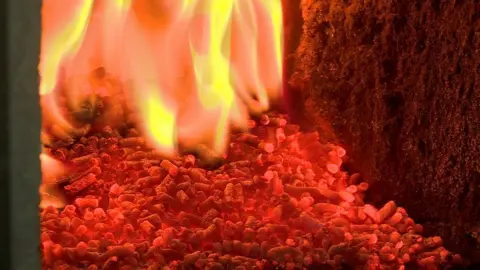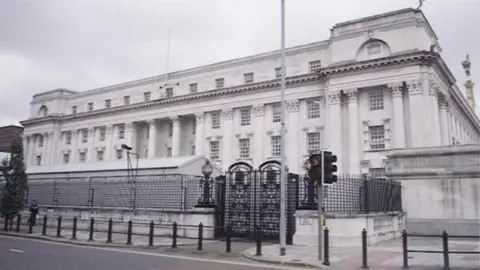RHI: High Court rules that farmer does not have to pay back £50,000
 BBC
BBCThe High Court has quashed moves to recoup more than £50,000 awarded to a farmer under the failed Renewable Heat Incentive (RHI) scheme.
The court also blocked an attempt to revoke his membership of the scheme.
In a test case, Thomas Paul, who runs two poultry farms near Coleraine successfully challenged sanctions imposed on him.
The sanctions had been imposed by the energy regulator Ofgem and upheld by the Department for the Economy.
The Department for the Economy is set to foot the legal bill in this case and that of many other boiler operators in Northern Ireland who are now expected to launch similar actions.
'Cash for ash'
Set up to encourage businesses and other non-domestic users to switch to environmentally friendly wood pellet burning systems, the RHI scheme was plunged into controversy when the potential cost to taxpayers emerged.
It became known as the "cash for ash" scandal because subsidies were higher than fuel costs and led to the collapse of Stormont's power-sharing executive in January 2017.
Under revised tariff rates introduced later that year, payments made to scheme members were substantially reduced.
Boiler owners have since been locked in a separate legal battle over the huge cuts, claiming they were given cast-iron assurances on the rate of return when they invested in the green energy incentive in 2012.
Along with other poultry farmers and businesses, Mr Paul issued judicial review proceedings against the department for upholding decisions by Ofgem to revoke its biomass boilers accreditation for the scheme.
They also challenged steps taken to recover periodic support payments.
Proceedings were resolved on the basis that Ofgem did not have the legal power to seek recoupment from participants.

Outside court, Mr Paul's solicitor Brian Moss said his client had reduced his use of his biomass boilers after the tariff was cut in 2017 but "did not have any other option" than to use them.
He added that "the cut in the tariff was effectively an increase in the price of fuel, and therefore the applicant had to find other ways to maintain the required level of heat in his poultry houses".
"The applicant maintains that he has not been responsible for any wrongdoing and he remains determined for his name to be cleared," Mr Moss added.
"The resolution of this case has hinged on a significant legal issue - namely that Ofgem did not have the power in law to recoup payments made to participants under the RHI scheme."
And he said it was expected that the outcome of this case "will affect many other cases where Ofgem has served a scheme participant with a notice of recoupment of periodic support payments paid under the scheme".
